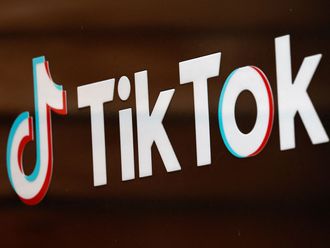New York: NBCUniversal heads into the next three Olympics — all of them in Asia — faced with a critical question: Was the lower-than-expected prime-time viewership for the just-completed Summer Games in Rio de Janeiro a fluke or a harbinger of fraying audiences over the next six years?
The answer, for now, is unknown, as NBC prepares for the 2018 Winter Games in Pyeongchang, South Korea, the 2020 Summer Games in Tokyo and the 2022 Winter Games in Beijing (which hosted the Summer Olympics eight years ago). No one is certain how much further consumers will alter their media habits, how much further television viewing will be diminished, or what new technologies will emerge during that time.
A further challenge to carrying an Olympics in Asia: the 13- to 14-hour time differences between the host cities and New York.
“You’d be a lot less concerned if you were in the US or in Continental Europe,” said Rich Greenfield, an analyst at BTIG Research. “Ninety per cent of the content from Asia will be happening when we’re asleep — and when we wake up, we’ll see our Twitter feeds and news stories telling us what has already happened.”
NBC works with the international federations that govern Olympic sports and the International Olympic Committee to get the most favourable scheduling. For games in Asian locations, NBC’s goal is to have as many marquee sports as possible — swimming, diving, track and field and gymnastics in the summer; figure skating and skiing in the winter — taking place at times when that they will be live in prime-time on the East Coast.
NBC would not necessarily need to cover gymnastics live; in Brazil, it showed the events on a delay of several hours.
Still, scheduling audience-grabbing events in prime time can be a tight squeeze. Events that start at noon in Korea in 2018 would be seen at 10pm the prior day in the Eastern time zone. And NBC cannot get everything it desires in scheduling despite the enormous rights fees it pays; other countries’ networks, including those in Europe, for example, push for favourable scheduling of their own to televise their popular sports.
Neal Pilson, an industry consultant and former head of CBS Sports, said: “If you asked NBC’s preference, they’d probably prefer not to have three straight in Asia, but they bought into the process without knowing where they would be held. But I think NBC will figure out a way to prevail in terms of scheduling.”
Still, even a favourable time zone like Brazil’s did not deliver for NBC as the network had expected. NBC thought that the greater number of live prime-time broadcasts from Rio would produce audiences larger than those amassed for London four years ago. But at 25.4 million, NBC’s broadcast audience fell 18 per cent from the 31 million that watched the London Games.
It added 2.1 million more viewers from live streaming and Olympic events on the NBCSN and Bravo cable networks. In all, the three sources of viewership did not combine to match London’s broadcast-only performance.
“Television is in a secular decline,” Greenfield said, adding that viewers increasingly accustomed to binge-watching online series are likely to grow increasingly dissatisfied with NBC’s prime-time model that compels viewers to wait for their favourite sport to be shown.
Still, even with decreased viewership, NBC dominated prime-time during the Rio Games and boosted 18- to 34-year-old viewership on other company programming like the Today show, NBC Nightly News, Access Hollywood and late local newscasts. In addition, 3.3 billion minutes of Olympic events, replays and highlights were streamed on NBC’s Olympic website and the NBC Sports app.
“The Olympics are the only events of its kind, dominating prime time for 17 straight nights, 118 Summer Olympic nights in a row,” Mark Lazarus, chairman of the NBC Sports Group, said in a statement, referring to the past Summer Olympics NBC had televised.
With billions of dollars invested in the Olympics, NBC hopes it can somehow increase those dominating audiences as it goes to Korea, Japan and China.
— New York Times News Service











